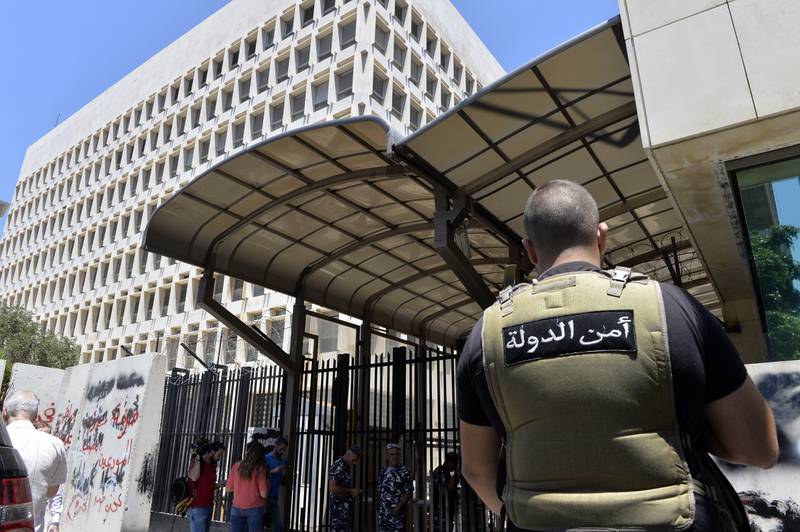
by thenationalnews.com — Jamie Prentis — A Lebanese judge raided the central bank in Beirut on Tuesday in search of its governor Riad Salameh, after state security forces failed to find him at one of his houses earlier in the day. Judge Ghada Aoun, a state prosecutor, has charged Mr Salameh and his brother Raja with illicit enrichment. But the 71-year-old governor could not be found, and Ms Aoun said she was unable to search for Mr Salameh in Banque du Liban’s offices.
Lebanon’s Information Ministry joins public sector strike “We immediately received a judicial order [to leave],” she said. Central bank employees then began a three-day strike following the raid. “The dignity of the institution and its employees comes first. We refuse to be treated with militia methods and we announce the strike”, said Abbas Awada, the head of the central bank’s employee union. “We are not defending Riad Salameh but the institution, and we do not accept these methods.”
A separate statement by the bank’s employees called on authorities to “intervene to put an end to these inappropriate behaviours by Judge Ghada Aoun, which deviate from all legal principles … so that we do not have to regret announcing an open strike.” Prime Minister-designate Najib Mikati said the raid was “not the appropriate solution” to Mr Salameh’s case. “What is required is to solve this case with a prior political agreement on a central bank governor and then take the appropriate legal course after,” he said. Mr Salameh is at the centre of two corruption investigations in Lebanon, but has failed to appear at several hearings.
A previous raid last month by Ms Aoun and security forces on Mr Salameh’s property in Rabieh, in northern Beirut, failed to locate him. Banque du Liban staff went on a one-day strike a week later to protest against “the unjust situation against the central bank and its employees, and to avoid later escalation”. Mr Salameh is one of Lebanon’s most controversial figures and has held the governor role for three decades. An economic collapse that began in 2019 has plunged much of the population into poverty and seen the local currency lose more than 90 per cent of its value.
Prime Minister-designate Najib Mikati said the raid was “not the appropriate solution” to Mr Salameh’s case. “What is required is to solve this case with a prior political agreement on a central bank governor and then take the appropriate legal course after,” he said. Mr Salameh is at the centre of two corruption investigations in Lebanon, but has failed to appear at several hearings.
A previous raid last month by Ms Aoun and security forces on Mr Salameh’s property in Rabieh, in northern Beirut, failed to locate him. Banque du Liban staff went on a one-day strike a week later to protest against “the unjust situation against the central bank and its employees, and to avoid later escalation”. Mr Salameh is one of Lebanon’s most controversial figures and has held the governor role for three decades. An economic collapse that began in 2019 has plunged much of the population into poverty and seen the local currency lose more than 90 per cent of its value.



